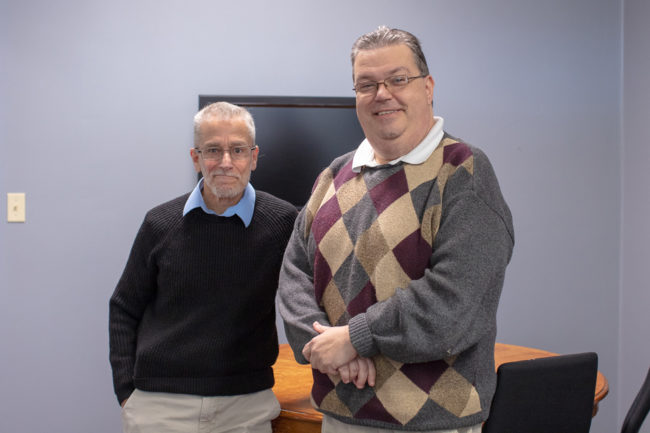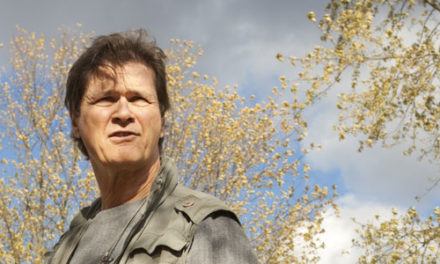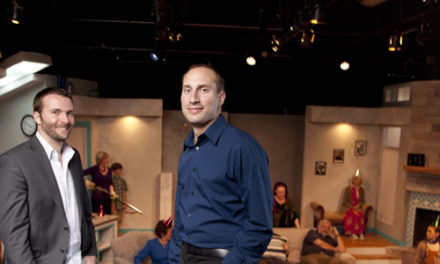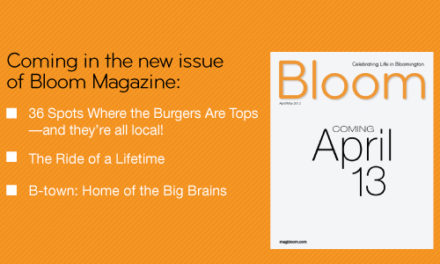
by DON BYRD AND WILLIAM ELLIS
One of the authors of this article is a conservative and chair of the Monroe County Republican Party; he supports President Trump and wants him to be reelected. The other is a life-long progressive who thinks Trump is our worst president in at least 100 years and a serious threat to democracy; needless to say, he does not want him reelected. Our feelings are examples of partisanship.
On the other hand, we have had and continue to have meaningful and mutually respectful conversations on both politics and other subjects. If we couldn’t do that, it would be because of polarization.
Partisanship means believing in your cause and the political team behind it. Partisanship might also be described as passionate advocacy, and it’s an essential part of politics, which, after all, is about competing views. Polarization is totally different; it means refusing to consider any other viewpoint— “my way or the highway”—and it can be very destructive. But partisanship can turn into polarization and, these days, it often does.
The challenge Americans face these days is, in the words of conservative fundraiser Greg Munford, “to engage in passionate disagreement while not damaging the political freedom which allows for that constructive disagreement. Passionate advocacy does that; polarization does not. Polarization … characterizes opponents as enemies to be defeated and destroyed. But the aim of advocacy is to broaden its base and persuade new converts to join … Advocacy thus respects opponents and considers them potential partners, not enemies.”
Some of the effects of polarization on Bloomington are well known. For example, our beloved Farmers Market has split into two pieces, neither of which comes close to the original. Less well-known is that—Bloomington being overwhelmingly left-leaning—people running for office as Republicans and someone staffing the GOP booth at the original Farmers Market have told us they’ve been hassled for no apparent reason other than being “on the other side.” And several business owners have told us that they’ve been harassed and threatened with boycotts for being Republicans.
The current national shouting match is terribly unfortunate because, after spending the last three years talking “across the divide,” we have no doubt that almost everyone on both sides has good intentions; yet many people on each side think the other side is full of people with bad intentions! (Caveat: We’re thinking of people at the grassroots level. Our experience is that leaders are much more likely to have hidden agendas, whether “good” or not.) In fact, the surveys described in the Hidden Tribes: A Study of America’s Polarized Landscape report (hiddentribes. us) show that what most conservatives and most liberals want for the country is not very different. The differences are almost entirely in how to get there, not where to go.
No matter who wins, it’s clear the fall elections could lead to an even darker time of polarization. To minimize the danger, Braver Angels, a national organization dedicated to reducing the extreme rancor in politics, is working in Bloomington as well as nationally on a project called “With Malice Toward None,” in which we work with organizations of three types: faith communities, civic groups, and colleges. We ask these organizations to agree to do certain things before and after the election to help citizens handle their feelings in a non-destructive way, to build our capacities for working together to address our common challenges, and to commit ourselves to a renewed citizenship. There’s more information on the Braver Angels website (braverangels. org/what-we-do-/with-malice-toward- none). Another resource citizens might find helpful is a form to help you decide how polarizing a candidate or a news medium is. It can be downloaded at magbloom.com/ polarization2020.
Trying to persuade colonists to vote in favor of the brand-new Constitution, James Madison wrote (in Federalist No. 41, published in 1788): “America united, with a handful of troops, or without a single soldier, exhibits a more forbidding posture to foreign ambition than America disunited, with a hundred thousand veterans ready for combat.” We’ve been watching the country disuniting for a long time now. It hasn’t been a pleasant sight for us, but our enemies have enjoyed it.
Partisanship is essential; polarization is a disaster.















